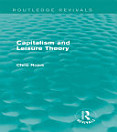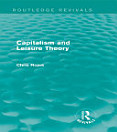Decentring Leisure: Rethinking Leisure Theory
এই ইবুকখনৰ বিষয়ে
Revealing how leisure practices have responded to living in a risk society, he shows that ′free′ time becomes something very different when simulation and nostalgia lie at the heart of everyday life.
লিখকৰ বিষয়ে
Chris Rojek is Professor of Sociology and Culture at Brunel University, West London. He is a prolific and influential author in the field of Celebrity, Leisure Studies and Popular Culture. In 2003 he was awarded the Allen V. Sapora prize for outstanding achievement in the field of Leisure and Tourism Studies. Besides lecturing in the UK he has given lectures on leisure in Australia, Canada, the USA and the Netherlands. In 2009 he was Hood Fellow at the University of Auckland, New Zealand. He also writes on celebrity culture, neat capitalism and myths and realities of national identity. His current research is on popular music and popular culture and the meaning of the celetoid in Reality TV.







